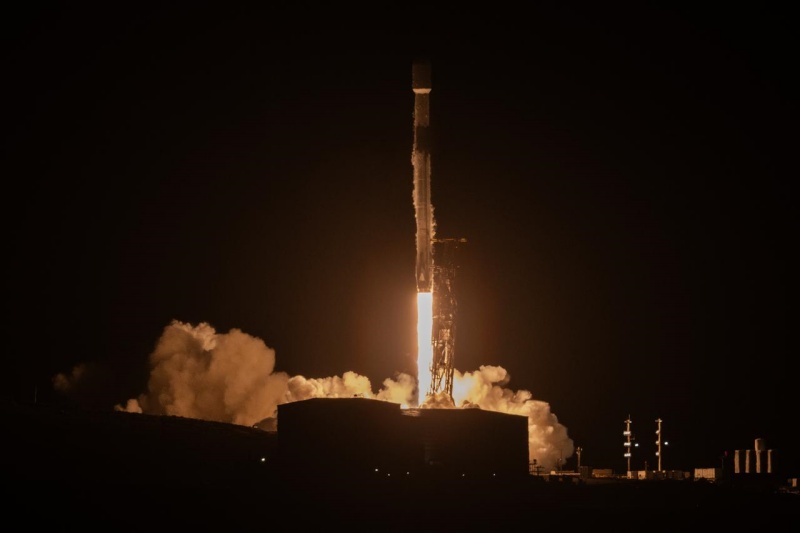
Spherex, an infrared space telescope jointly developed by the Korea Astronomy and Space Science Institute and NASA of the U.S., is launched on March 11 at 8:10 p.m. (March 12 at 12:10 p.m. Korean Standard Time) from Vandenberg Space Force Base in Southern California. (NASA)
By Jeon Misun
The Spectro-Photometer for the History of the Universe, Epoch of Reionization, and Ices Explorer (Spherex), an infrared space telescope jointly developed with the U.S., is now in space.
The Korea AeroSpace Administration (KASA) said the device, which was developed by the Korea Astronomy and Space Science Institute and NASA of the U.S., was launched on SpaceX's Falcon 9 rocket on March 11 at 8:10 p.m. (March 12 at 12:10 p.m. Korean Standard Time) from Vandenberg Space Force Base in Southern California.
The telescope separated 42 minutes after liftoff and entered a sun-synchronous orbit at an altitude of some 650 km. It communicated with Norway's Svalbard Ground Station, NASA's near-space network, about an hour and 20 minutes later.
Upon reaching its target orbit, Spherex will undergo posture and temperature control adjustment for 37 days before beginning pilot operations.
After finishing this phase, it will begin an observation mission spanning 2 1/2 years by entering a polar orbit completed every 98 minutes.
The observational data of the skies captured by Spherex in 102 infrared wavelengths will be used to make a 3D color map of the universe. Analyses of light from the early universe after the Big Bang are seen to provide clues to the universe's formation and evolution to assist the search for life beyond the solar system.
"The successful launch of the Spherex space telescope marks major progress in observing light from the early universe and galaxy formation, an important challenge that humanity must solve together," KASA Administrator Yoon Young-bin said. "This proves Korea has raised its space science level."
msjeon@korea.kr
